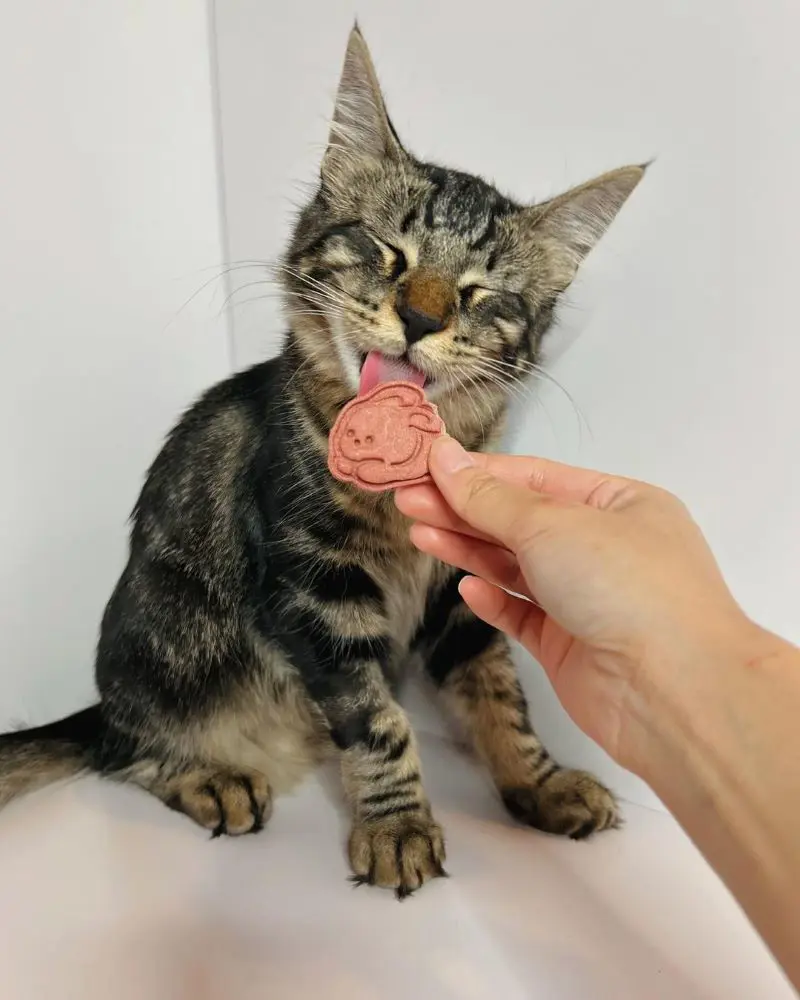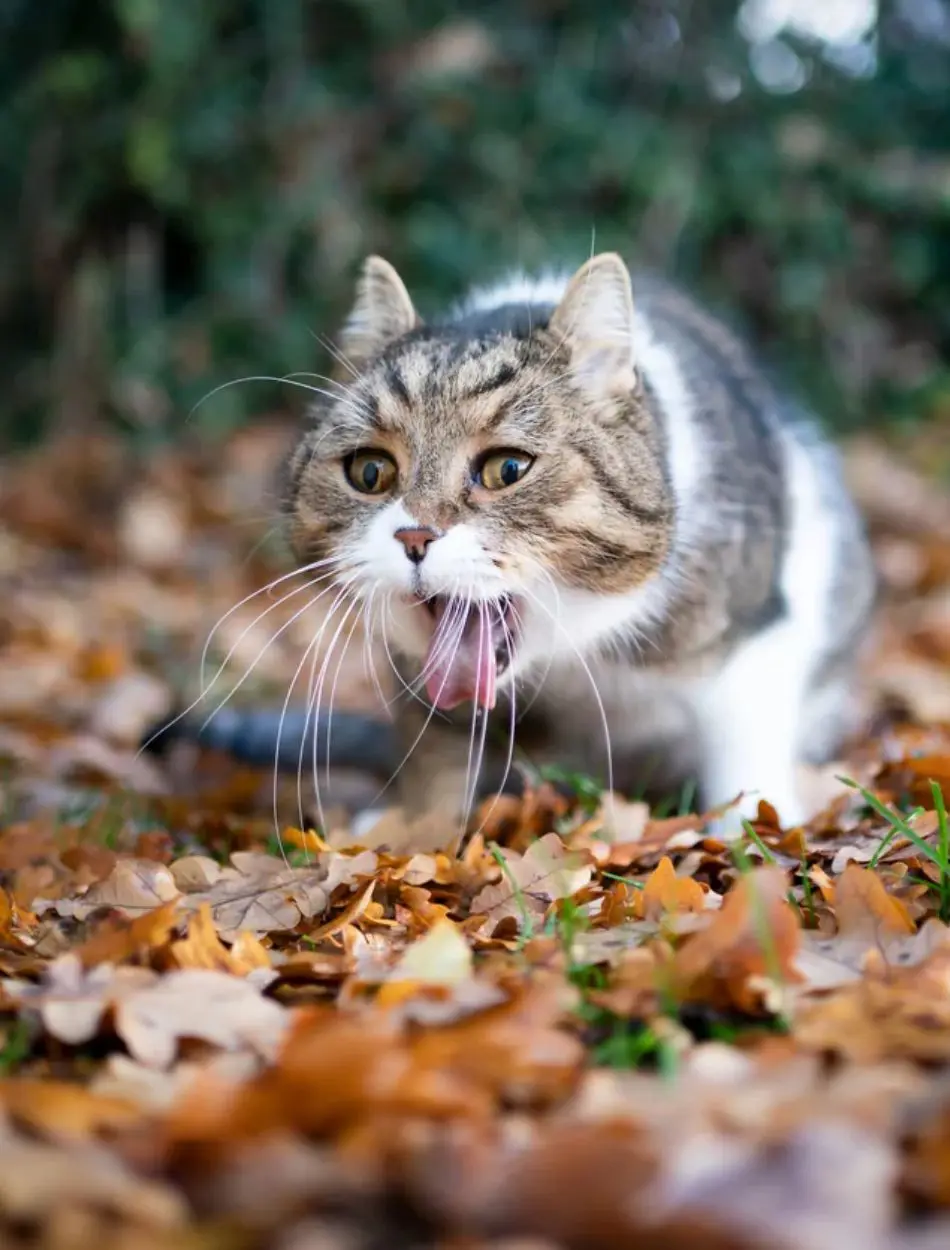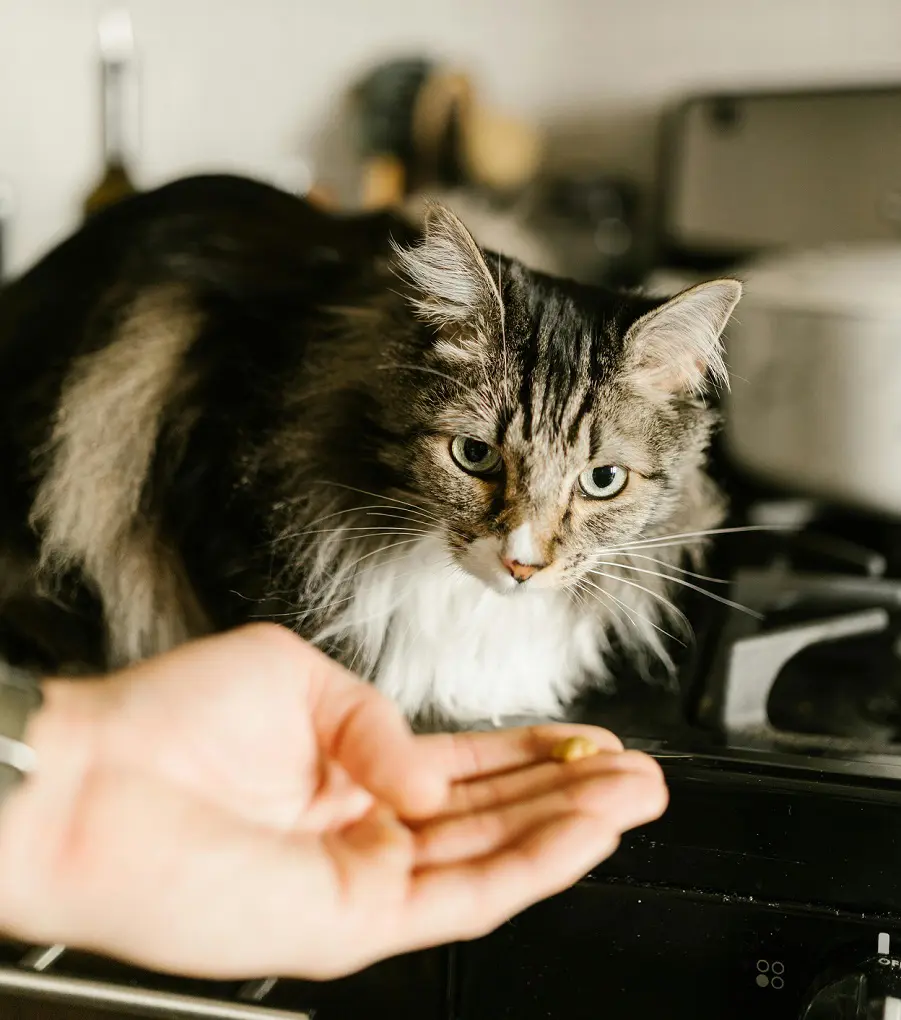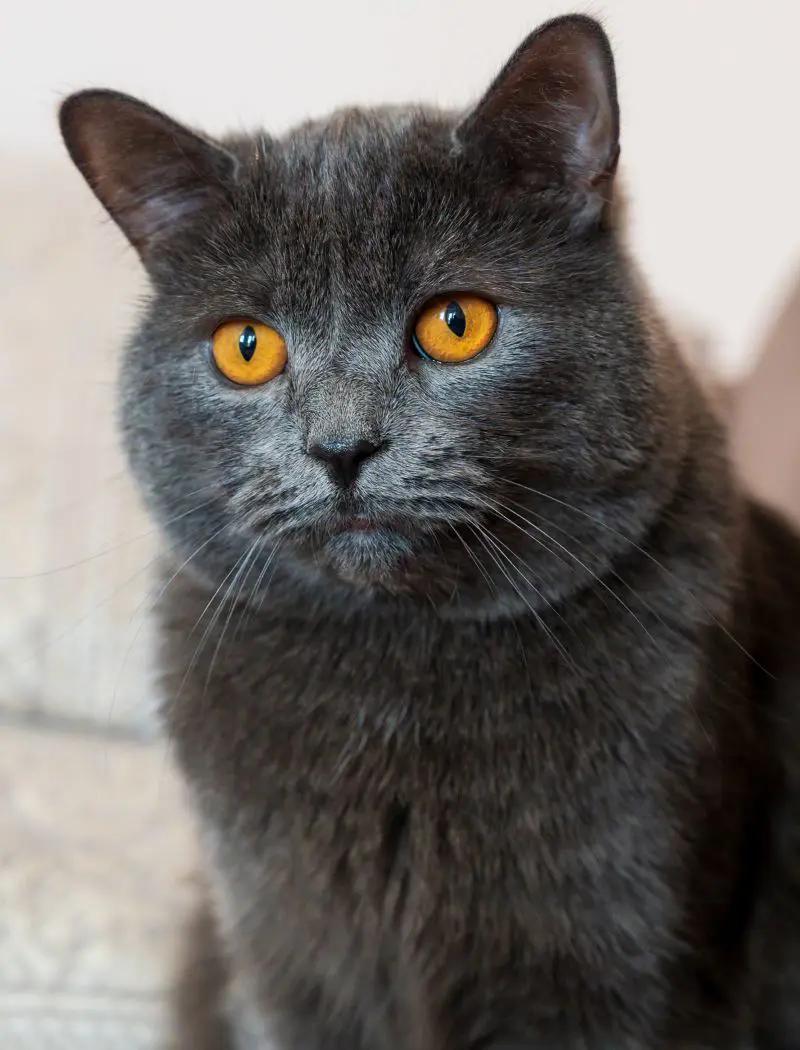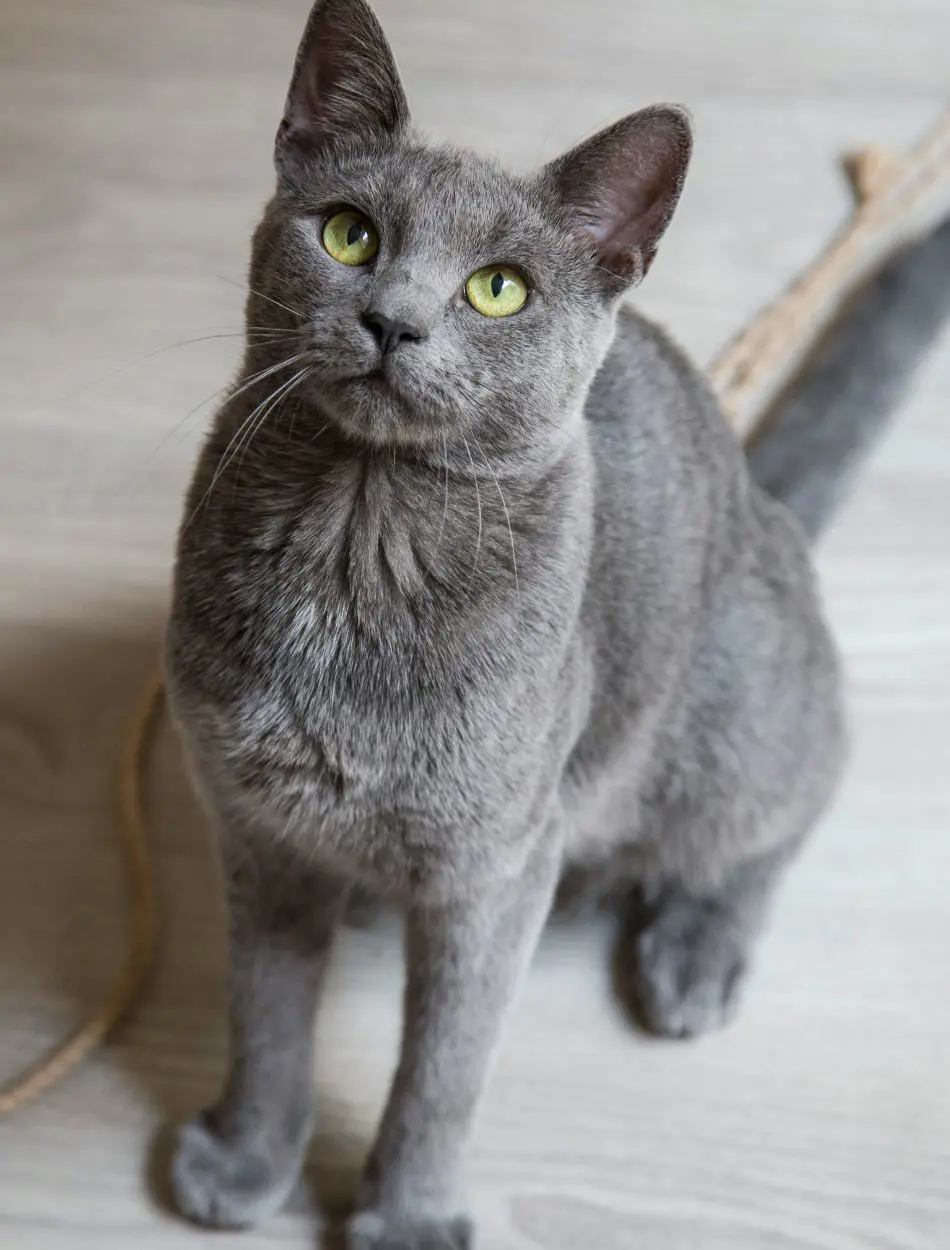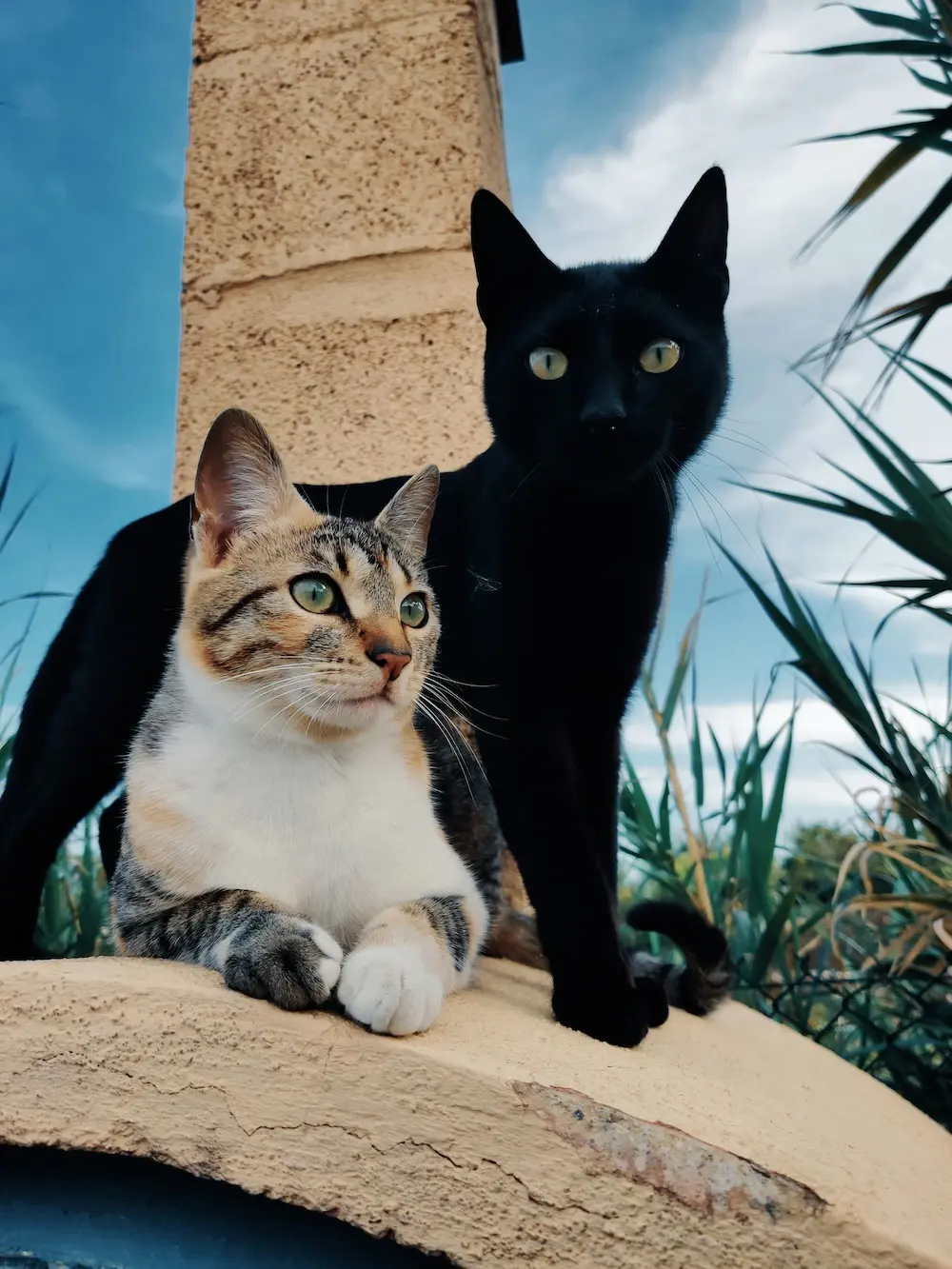Why Are My Cats Eyes Dilated?

Dilated pupils in cats can be a natural response to low light conditions or heightened emotions such as excitement or fear. However, consistently dilated eyes may indicate underlying health issues such as hypertension, eye disease, or neurological disorders.
You might only figure this out from watching their behavioral cues to eye dilation and you may find those eye pupils lying in a consistently dilated condition for no good reason, make sure to give it vital care and attention by taking your friend to a veterinary clinic, as that could help your cat avoid potential health problems in time.
Causes of Cat Eye Dilation
Cat eyes can dilate for a variety of reasons, it can be normal as well as severe. The following are some of the common causes of cat eye dilation:
Low Light Conditions
During low light, the pupil of the cat dilates in such a way that much light falls in contact with the eye, and in so doing, their vision gets better under these circumstances. Adaptation of pupils from narrow to wide enables cats to carry out both hunting and living effectively in the active environment with hours composed of dark or low-light levels of the crepuscular periods.
The slit pupils dilate to make the make of a cat's eye such that maximal light is taken in towards the retina. Therefore, they can see so much with their eyes, making them remain aware of anything moving, thus stepping up predation acts.
Hunting Instincts
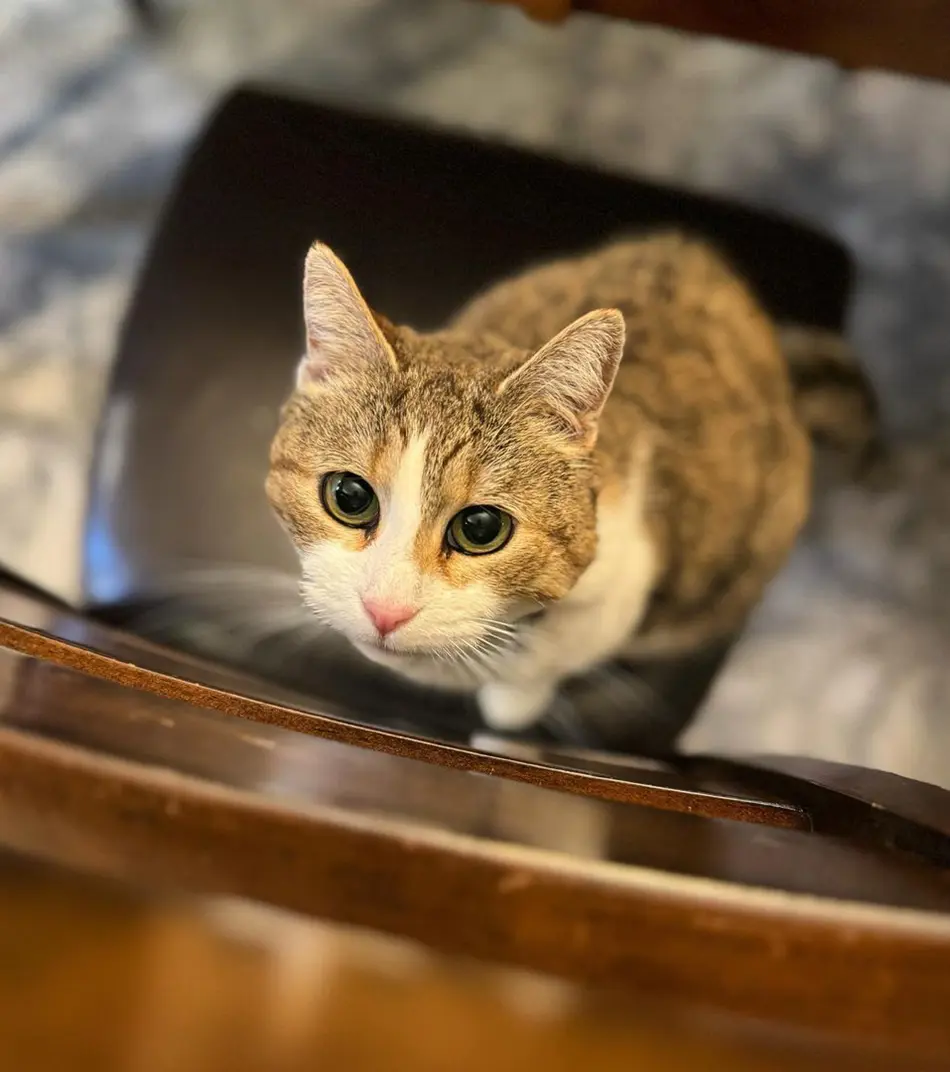
A cat's hunting instincts are an agglomeration of inborn behaviors that trace their essence back to evolutionary history, hence, predators. These make a catwalk, run, creep to someone or something, and seize their prey according to their home-spun hunting skills passed on through the generations.
All cats rely on the keenness of their eyes, ears, and sensibility of smell to note, judge, and stalk their victims. During characteristic cat behavior, hunting behavior may consist of crouching low over the ground sitting silently while trying to come up with an idea of the target, or continuously catching fast-planned captures.
Excitement
In some instances, mammals, such as cats, exhibit expressions of excitement, where they appear to be more exposed or interested due to the dilation of the pupils when faced with some specific situations or stimuli. It is the dilation of pupils in the cat due to an unexpected excitement, in other words, gaining more information.
This dilation of pupils in a cat during excitement is all part of the normal reaction that assists them in getting focused in readiness to react quickly to the fast stimulation emanating from around them. Interpretation of dilated pupils in a cat offers insights into its emotional state and things it likes or dislikes in its surroundings. Humans deal with fear, stimuli uncertainty, and anxiety.
Fear or Anxiety
Making your cat receive visual information and show a much higher physiological tone in response to sensations toward a known threat or perceived stressful event can make their eye dilated. If a cat is terrified or anxious, its pupils will widen and allow a lot of light into the cat's eyes, making them even more alert to the danger.
This adaptation primes an individual for escape behaviors, whereby he or she may either rise and confront the perceived danger or take off for protective refuge. Dilated pupils in cats may also serve as an important indicator of the emotional well-being of cats and understanding and dealing with fears or anxieties helps at the root cause, improving overall welfare for cats and reducing stress.
Medication

Considering that there is a need to prescribe medication for cats in case of infections, pain control, or any other reason, there are some that may work in the autonomic nervous system. One of the side effects of a medication may cause the eye pupils to be dilated completely, and when that happens, the normal size of the pupils cannot be maintained, nor can it respond to light.
Watch very vigilantly how your cat is responding to medications and if you see unnaturally widely dilated pupils, or another worrisome symptom, that arises only after you start the medication, call your veterinarian at once. If dosage needs adjusting, or other medication can be substituted, sometimes alternate medications can be found to solve side effects and bring continued comfort during treatment.
Catnip
The herb contains nepetalactone, which is quite popular in providing cats with a 'high' and although there is no clear causality as to why exactly catnip reacts with cats the way it does normally, consumption of catnip symptoms can cause dilated eyes in cats.
For the most part, they seem pretty normal and will certainly go back to being their old selves again in about 10 minutes and they won't react again for a few hours. Many toys and treatments for cats contain catnip as 1 of their ingredients. If your cat has a slightly lost look and you have just given them a new toy then maybe this is your explanation!
Neurological Conditions
The causes of such dilated pupils and the issues that may be included are those of the brain and nervous system. Such huge differentials of what may be affecting the cat's condition can be anything from a seizure and stroke to meningitis and encephalitis. Neurological deficits would undoubtedly complicate the ability to regulate the size of the cat's pupils and their response to light.
Other neurological signs that may be associated with many diseases, in addition to mydriasis, include tremors, ataxia, behavioral changes, or an altered state of consciousness. Your cat should be promptly seen by your veterinarian so that further neurological work-up can identify a specific underlying neurological lesion and allow treatment options to best manage signs and optimize the quality of life for your cat.
Feline herpesvirus

This mainly infects the upper part of the respiratory system and can lead to the inflammation of the conjunctiva of the eye membrane and the formation of ulcers on the cornea or the eye's clear part and can dilate the eyes of the cat. It reaches the ocular structures and the associated nerves of the eye.
These inflammations trigger the nervous or neural parts responsible for the size of the pupils. Most significantly, it can infect and irritate, and a concentrated sympathetic response can, over time, lead to dilated pupils in the body, as a part of the whole stress and distress reaction in the body.
Hyperthyroid
It is a condition in a cat where it produces more thyroxine hormone than is necessary and this high hormone production can act in the eyes to result in many physiological effects caused by the body.
The increased activity of the cats with the increased functioning of the hyperthyroid is interrelated with an increase in the autonomic system's control over pupil dilation and constriction within the eyes. The autonomic functioning is increased under the effects of the dilated size and response of light reflexes in the pupils of affected cats.
Head Trauma
The dilatation of the pupils in a cat's eyes may result from head injuries, which can either mean some sort of brain damage or, after all, damage to the optic nerves. In so doing, an extremely heavy blow to the skull may inhibit the control of a cat's pupils' dilatation by the autonomic nervous system resulting in abnormal dilatation.
The presence of dilatation with one pupil more dilated than the other, or both, would possibly point toward the existence of some very serious neurological injury.A cat with any sort of head injury will require that the pet be immediately taken to a veterinarian for the best chance of recovery by minimizing the extent of damage to the brain. In some cases, radiographs or MRIs can be taken to evaluate the extent of the injury and appropriate treatments.
Cataracts

This is the cloudy or translucent cataract lens of the cat's eye that is opaque to stop light from lying to the retina, in turn, obstructing vision. The existence of cataracts does not cause the dilation of the pupils, though the very rare exception of the arising of other conditions in cataract-prone patients might lead to it. In such a way, this pathogenesis increases the chance of secondary glaucoma. Afterward, the intraocular pressure can result in the dilation of pupils.
The cataracts of cats can make them blind, and the symptoms of the disease can go from knocking over items or unwillingness to move under relatively low light to a dramatic change in the reflective, shiny structure of an eye. The best method of treatment is finding general health maintenance for a cat's eye by observing regular visits and prevention from the related conditions.
Corneal Ulcers
The ulcers themselves would not be causing the dilated pupils, however, the ulcers are painful, and a stress response to the pain might just cause the pupils to dilate. Classic outward signs that a cat can show when he has a painful sore on the surface of his cornea are squinting or simply narrowing of the eye, rubbing at his eye, tearing, and more frequent blinking.
The eye is going to look red, swollen, and cloudy and it is of prime criticality to get prompt medical attention in a case of corneal ulcer to prevent further damage to the eye and probable harm to the vision. Most likely, management would be using antibiotic or antiviral drops, analgesics, and protection from the ulcer to enable it to heal. In some severe cases, due to surgical intervention, the cornea can only be corrected to make the eye function properly.
Exposure to Loud Noises
Your cat's pupils will dilate, a normal fearful and stressful reaction to the noise. This is because turning on the sympathetic nervous system in case a cat gets a sudden loud noise. One of the resultant effects of such a physiological response would be increased pupillary dilation for perfect vision and clear awareness of the environment.
Apart from the dilated eye, other behavioral body language that you will note in your cat signaling stress includes a flattened ear, puffed-up tail, and the intention to run away from whatever source is making the noise.
If the noise is persisting or rather chronic noise exposure, it might lead to chronic stress that has negative impacts on general health and well-being. Keeping the cat away from noise in a gentle, quiet place, and applying some sedation methods will keep it far from stress and maintain health. If such noises are likely to become frequent at home, you can check with your vet about how to lower the stress level for your cat but also make their surroundings as quiet as possible.
How Do Cat Pupil Function?
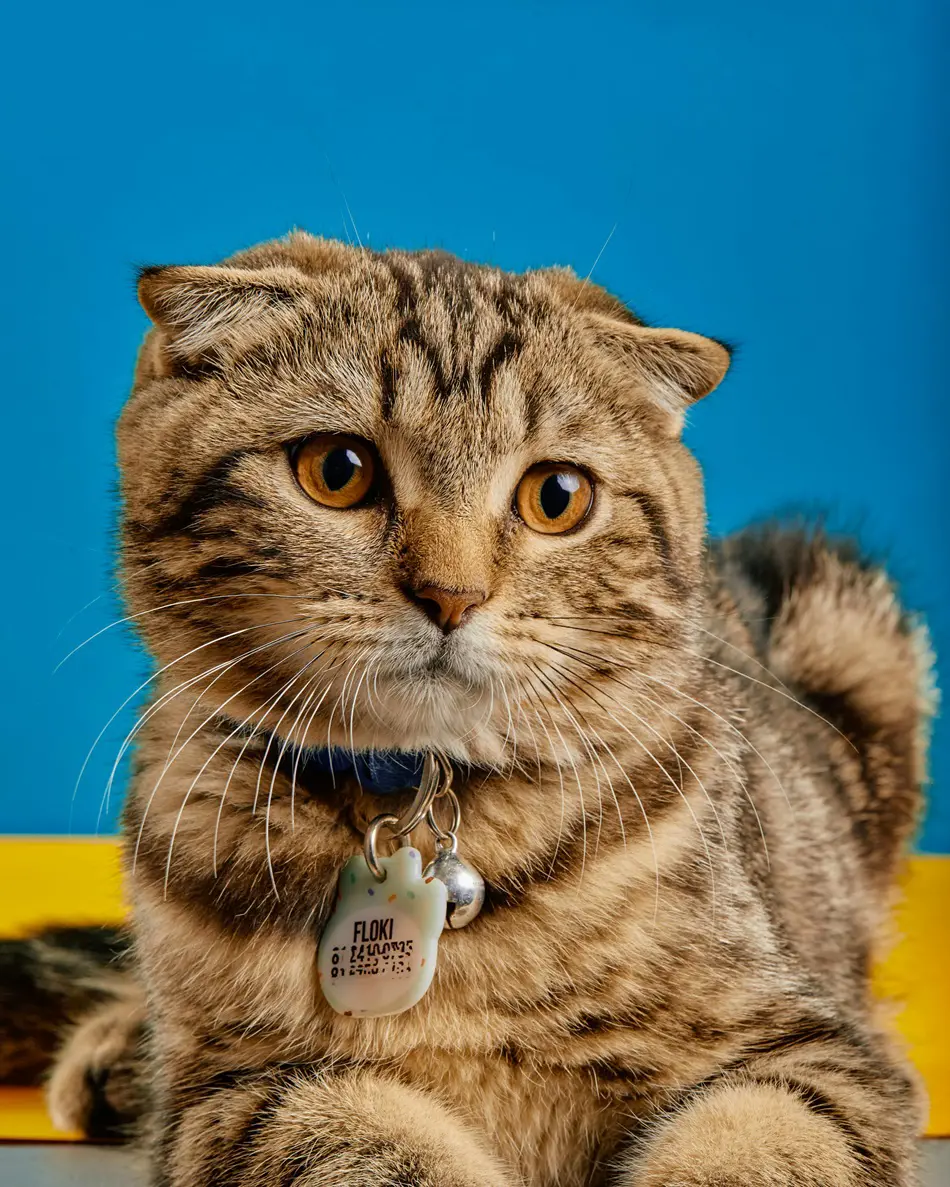
In cat eyes, they have the same sclera, iris, and pupil as in human eyes and the shape of the pupil drastically changes, it is most often in the form of a vertical cut for the pupil of the feline.
This type of pupil is suitable for an animal that is a predator living in very low light around both sunset and sunrise and therefore, it is very good in low light. The eye controls the amount of light that enters it. Converted by the light into nerve signals created by the receptors, and subsequently by the brain executing the analysis, these muscles in the eye bring about changes in the size and shape of the pupil, hence regulating the quantity of light let in by the eye.
The change in the brightness contractility of the pupil is quite sensitive. Because the brightness is intolerable, therefore, it can bear a lot of strain which may lead one to be momentarily blinded.
Cat Eye Dilation: Is It Cause for Concern?
Their pupils might flicker for just a moment and continue and go back to normal size, there usually is no cause for alarm. This often appears to be the case if an ostensible explanation or cause is apparent from the scenario for example, should the cat have gone into a dark room or if it has become startled by a loud noise, catnip, or even playing a game of chase.
Offering comfort, knowledge, and support, the veterinarian should be called in case of suspected toxicity, most especially if your cat has ingested prescribed medication. Your vet is not going to condemn you he isn't going to call the fuzz. Chances are, he just wants to see your cat up and about and of course, if the professional you contacted happens to be your vet, he will probably suggest.
Methods to evaluate your cat's eyesight.
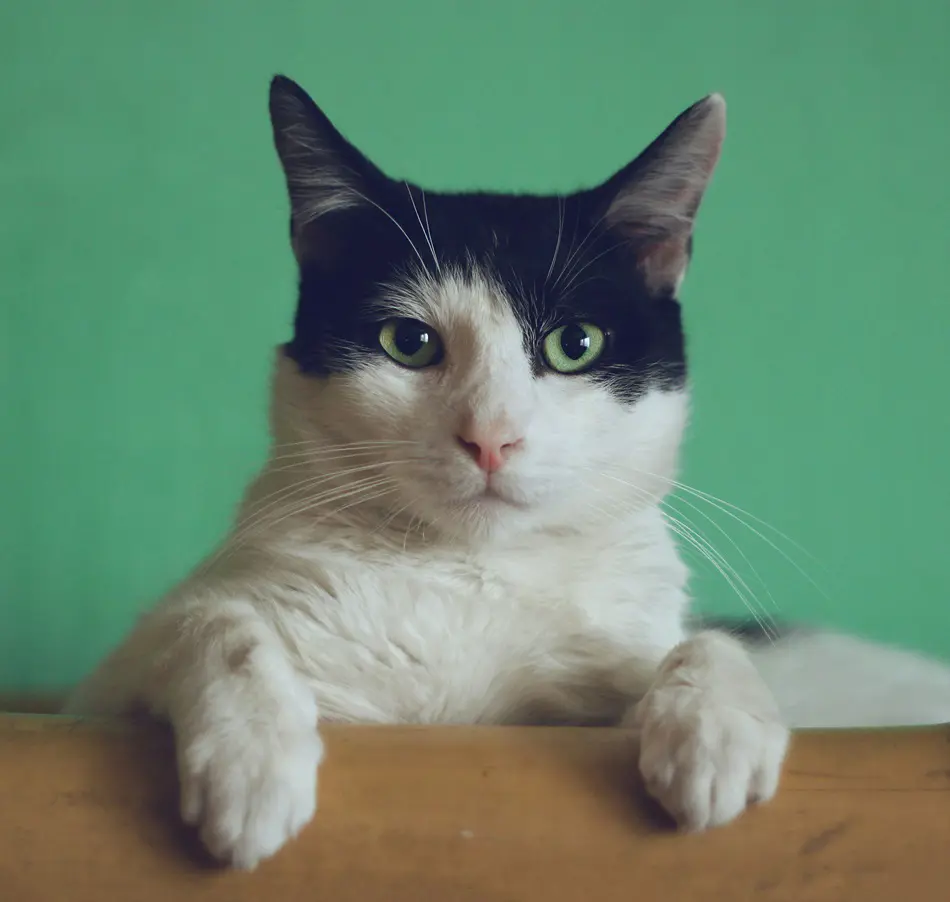
There are a few ways that you can analyze your cat's eyesight:
- Swiftly move a laser pointer across the ground in front of your cat.
- Throw cotton balls in the cat's path, your cat typically plays with such objects.
- Move your hand slowly before your cat's eyes without creating any air movement and your cat will blink.
- Illuminate your cat's eyes with a strong beam of light and the majority of the time they will react.
- Observe if your cat is bumping into objects.
- Use different levels of light to check your cat's eyes.
- Monitor how your cat moves after he sees his food, most of the time they'll move quickly after seeing food.
Recent posts
Cats
How Much to Feed a Kitten: A Complete Chart, Schedule And Caring Guide
As cats are fast-growing, their nutrient requirement can change quickly, sometimes within a few days. Generally, a food schedule consisting of small amounts spread throughout the day is much better than feeding 2-3 large meals. If you are unaware of ...
Why Is My Cat Throwing Up? 16 Common Reasons
Your cat doesn't always give you a clue why their tummy is troubling them so much that it is hurling hairballs or something more serious. Why does your cat vomit? From simple dietary indiscretions to a myriad of other common and complex conditions, t...
A Step By Step Guide On How To Give A Cat A Pill
Since cats are regarded for their independence and generally tend to refuse to take medications, giving them a pill can be a tough attempt for many pet owners. This makes the process stressful for both the pet and the owner. This guide is supposed to...
18 Signs A Cat Is Dying
One of the most difficult things to witness as a pet owner is seeing your feline's degrading condition. They are known to hide their pain and discomfort during the end of their lives. It is important to know the signs a cat is dying to offer comfort ...
Cat Poop Color Chart: How To Tell If Your Cat's Poo is Healthy
Monitoring your cat’s poop can offer essential clues about their health. While it appears to be a messy chore, taking note of the color, texture, and consistency of your cat's stool can warn you of underlying health troubles. The cat poop color...
15 Hypoallergenic Cat Breeds
Fur shedding, while a routine part of a cat's hygiene, can be a source of irritation to their owners. Especially in people allergic to protein excreted by cats, this can be a serious problem. Despite pet parents' fascination with perfect hypoallergen...
